THIS ESSAY WAS WRITTEN IN 2016 in the immediate aftermath of the URI ATTACKS with the aim of bringing some nuance in the increasingly binary discussions of Pakistan. Looking back at it in 2020 there are a few points in the essay I mildly disagree with but on the whole, I stand by my arguments.
For anyone willing to read a shorter -TL-DR version find the link HERE:
Note: This is not a scholarly analysis of Indo-Pak question but an essay ((*mildly subjective)) on the question with references being presented for most of the essay.
Every well-read Indian who has thought enough about the India-Pakistan issue will have faced Hamlet’s dilemma — “To be or not to be”. It’s fair to assume that national patience, with everything related to Pakistan, is waning very fast nowadays aided by the explosion of social media. Simply put — most Indians have had enough of this shit for 69 + years (the Idea of Pakistan being older than Pakistan). The leftist solution to the Pakistan problem has always been the “Aman ki Asha” narrative. The reactionary position of some of the Right-wing is to totally boycott anything related to Pakistan every-time a terrorist attack takes place in India. This position though backed by popular opinion at times like this seems to be no closer to a permanent solution to the problem. To come up with potential solutions for this problem, we need to discuss both these approaches and we also need to dig deep into the Nation-state of Pakistan.
The movement for Pakistan and it’s founders:
Mohammad Allama Iqbal and Mohammad Ali Jinnah are often credited as the prime-movers of the Pakistan movement- both being advocates of the Two-nation theory. The dichotomy in the positions held by both these leaders would serve as a good instrument in analyzing the contrasting narratives in the creation of Pakistan.
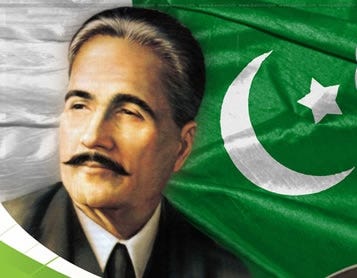
Iqbal, wrote his famous poem “Saare Jahan se accha” or tarānah-e hindi in 1904 which still resonates with Indian patriotism. However, a less widely known poem was also published by Iqbal in 1910 — tarānah-e millī.
In tarānah-e hindi, Iqbal wrote of secularism in Hind (India) –
mażhab nahīñ sikhātā āpas meñ bair rakhnā;
Hindī haiṉ ham, watan hai Hindūstāṉ hamārā
In 6 years time, Iqbal wrote another poem on the same composition, this time carrying a Pan-Islamic message. (a message all international Islamist militants share)
Cīn o-ʿArab hamārā, Hindūstāṉ hamārā
Muslim hain ham, watan hai sārā jahāṉ hamārā
It seems prudent to guess that Iqbal had been thoroughly reoriented between 1906–1910 becoming the philosophical backbone of the Pakistan movement.
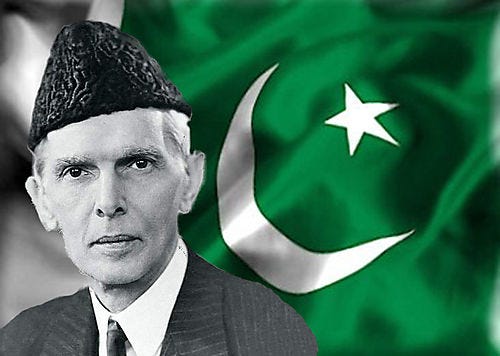
Jinnah was a pork eating and whiskey drinking secular aristocrat and a great follower of Gopal Krishna Gokhale and also a Congressman. A true secularist in his early life, Jinnah was deeply uncomfortable with the public display of Religion. Jinnah was also Tilak’s lawyer when the Lokmanya was acquitted from Mandalay (Tilak and Jinnah shared a very warm friendship after Tilak’s release from Mandalay and his reentry into politics). Jinnah broke off from the Congress after Gandhi’s influence on the party began increasing. He was particularly opposed to Gandhi and Maulana Azad on the Khilafat movement (Gandhi supported the Khilafat movement for consolidation of faltering Hindu-Muslim unity) — calling it a pandering of most reactionary elements of Muslim Ulema. The subsequent rise of Gandhi and his mass appeal meant that Jinnah was sidelined in the rapidly growing Congress party. Jinnah retired from politics, only to be inducted into the Pakistan project by Iqbal in the 30s. When all negotiations of Muslim league with Congress failed, Pakistan and Partition seemed to be more likely than the Cabinet mission plan. It was the same Jinnah who — 26 years earlier had opposed Gandhi on Khilafat movement (Bringing religion into politics), called for the Direct Action Day– one of the bloodiest days in Indian history — which lead to immense violence — especially in Bengal. This smart and astute lawyer continues to be a celebrated figure in all of Pakistan and some of the Hindu Right while his legacy in India and the rest of the world is considered tainted. (Hindu Right in India tends ironically salute Jinnah while castigating Gandhi and Nehru).
However, it’s important to note that Pakistan was not always conceived as an Islamic republic but as a homeland of Muslims in India. While Congress and Hindu Right had a part to play in the formation of Pakistan — major blame of the Partition has to be laid squared on the Jinnah and the Muslim league.
References: Section 1 and Section 0:
Pakistan- the Nation-State:
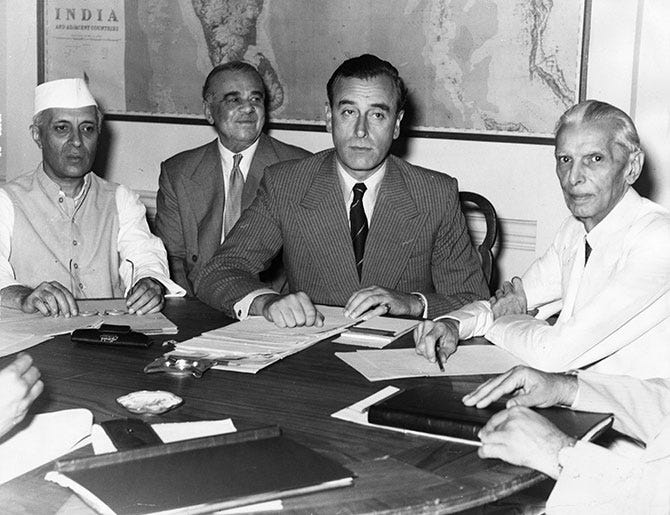
Created at the back drop of the worst violence on Indian soil in centuries and the biggest mass migration in human history, Pakistan the nation state was created with extreme handicaps. While its a popular notion that it was India that got the bad end of the stick w.r.t Partition, the truth of partition is more nuanced and conflicting. While all the resources of British India were shared fairly according to population proportions, nearly all the machinery of the British Raj and its administrative and democratic institutions remained in India. While Pakistan received 20–25% of the British Army — depending on sources and methods of counting (for a population percentage of around 17%), India overwhelming inherited the entire machinery of the British Raj.
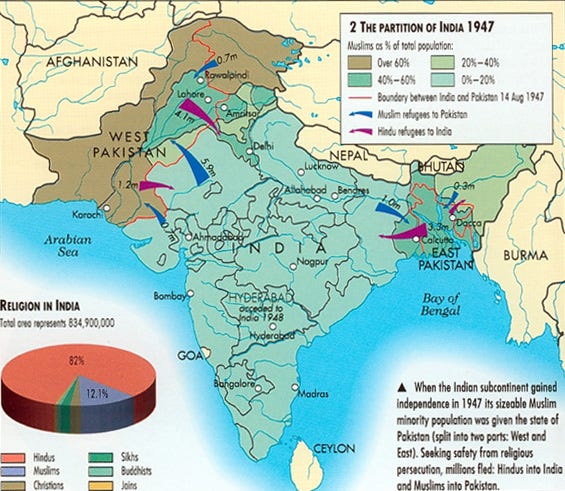
The geographical separation of nearly 1800 km between Lahore and Dhaka also offered tremendous governing problems. Even with the 21st-century technology, governing over such geography is inconceivable, the feasibility of such geography must’ve been difficult in 1947.
This newly created nation-state of Pakistan also faced a tremendous identity crisis. While Indians had been Indians for millennia, Pakistanis had been bankrupted of that identity and heritage. In the aftermath of the bloody Partition, the Muslims of Pakistan — which was conceived as a Muslim homeland began to see itself of a Muslim State. While 4 major languages (Bengali-50%, Punjabi ~20%, Urdu — 10%, Sindhi ~10 + Afghan and Balochi languages) were spoken in Pakistan, Urdu — the Islamized and Persianised version of Hindustani was imposed on a population of 60 million. This imposition of Urdu rather than having a unifying effect on the country has only added to the identity crisis (in retrospect).
The first act of this Islamized and the identity-less country was to wage jihad on the independent princely state of Kashmir to free it from its Hindu ruler. The issue of integration of other princely states was still being sorted when Jinnah sent troops and infiltrators in the guise of tribesmen to conquer Kashmir. India had to intervene to protect Kashmir from the Pakistan backed infiltrators and jihadis. If the Pakistanis had not acted this rashly, it’s conceivable to assume that Kashmir would’ve been Partitioned with Jammu and Ladakh coming to India with the Kashmir valley being partitioned. A formula similar to Junagadh would’ve applied to Kashmir with a potential referendum/ plebiscite. (Junagadh was a border state with Hindu majority and muslim ruler, whereas Kashmir was a Muslim majority state with a Hindu ruler)
While Indians will like to reiterate that the ruler of Kashmir acceded to India, Sardar Patel had not allowed the Muslim rulers of Hindu majority Junagadh and Hyderabad to accede to Pakistan. After failing to capture all of Kashmir, Pakistan annexed (via accession, political incentives, and military pressure) the princely states of Kalat, Makran, Las Bela, and Kharan to form the province of Baluchistan and extended its rule over the Pashtuns of Northwest provinces along with Afghanistan. The integration of these states into the country was not smooth and force had to be used to integrate these regions. Insurgencies and resistance are rife in Baluchistan and Sindh today (Baloch secessionist movement has been active since the 60s).
References: Section 2, Section 0 and Section 3.
The idea of Pakistan:
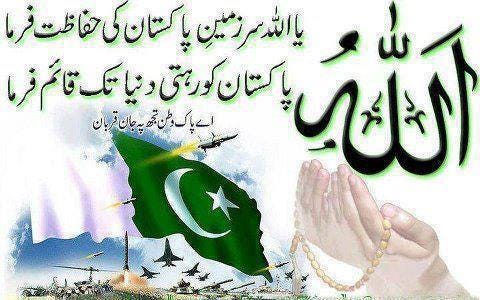
While being without a vibrant political class and bureaucratic machinery Pakistan inherited 20% of the military of the British Raj and its military strength was consolidated after its Pakistan became an ally of the West in the Cold War. This largely Punjabi army was now responsible for a country of 8-Crore — 6–7 Crore of whom were not Punjabis. The only easy narrative that could unite such an identity-less state was the threat of an existential common enemy. Historically an external threat has always been the best unifying factor when it comes to identity politics. Pakistan started defining itself as Anti-India. It not only embraced the USA and Britain in the Cold war (While India tried to remain neutral), it adopted Islam as the unifying factor for the country which also had significant minorities (esp East Pakistan). Thus Pakistan’s identity was reinforced as being antithetical to the Idea of India.
Snide comments to the Vegetarian Hindus were let in everywhere from newspapers to textbooks. Because of the overwhelming success of medieval Muslim invaders in India, the Pakistanis — including the army always believed that Pakistan could always overcome the numerical advantage India held. In some circles, Pakistan was also conceived as the temporary strategic phase in the ongoing Islamic conquest of India or Ghazwa-e-Hind.
When the wars of 1948 and 1965 served as a nasty shock to this feeling of Muslim superiority (overlooking the fact that many Muslims have served in the Indian armed forces and died fighting against Pakistani troops) the state of Pakistan refused to acknowledge defeat in these wars to the public. To date, some Pakistanis don’t know that Pakistan did not win the 1965 war against India (Many Indians also believe that India totally smashed Pakistan in the war which is far from the truth). The aggravated identity conflict naturally meant further Islamization of the state. By 1960, Pakistan’s capital was relocated from Karachi(Its largest city) to Islamabad.
References: Section 2 and Section 3.
1971 and the following crisis:
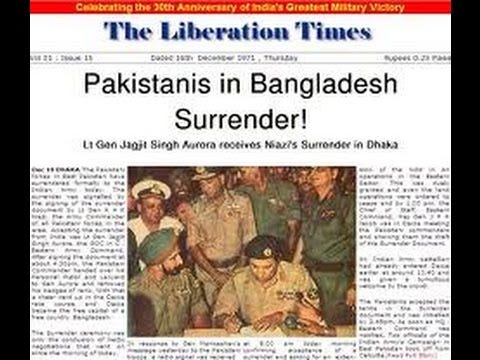
The imposition of Urdu on 50–60% of its Bengali population was not taken well by the Bengal. Bengalis had increasingly become frustrated with the gross political and economical neglect of East Pakistan by the West Pakistani elites under the guise of Defense. The 1970 cyclone which devastated East Pakistan further increased Bengali nationalism. Sheikh Mujibur Rahman (leader of Awami league — the Bengali party), won the elections of 1970–71. The military launched Operation Searchlight, which not only included detaining of the democratically elected leader of the country, but also resulted in a genocide of the Bengali population (particularly Hindus and Buddhists). The war culminated with the formation of Bangladesh — a Muslim majority country and an utter humiliation of Pakistani forces at hands of Bengali Mukti Bahini and Indian armed forces.
The 1971 war also led to the shattering of the Pan-Muslim identity cultivated by the Pakistani state. Instead of accepting the 2-nation theory as a mistake and introducing a more diverse definition of Pakistan, Pakistan first under Zulfikar Ali Bhutto and more so under Zia-Ul-Haq began calling itself as an Arab country and slowly became the Islamic Republic of Pakistan. While Iran, closer to the Arab world never calls itself Arab, Pakistan has ostensibly made it clear that it thinks of itself as an Arab country.
Pakistan started calling — Mohammad bin Qasim, a general of Ummayad Caliphate to invade Sindh in the 7th century as the first Pakistani while Sindh was called the Gateway to Pakistan (It was Jinnah who had initially begun calling it so). The idea of Pakistan began in 7th century AD with its Hindu and Buddhist ancestry largely forgotten. Ghazwa-e-Hind, an obscure Islamic doctrine devised in the 7th and 8th centuries as a guise to invade the land known as Hindustan, became the official doctrine of the Pakistani army aimed at making Jihad against India.
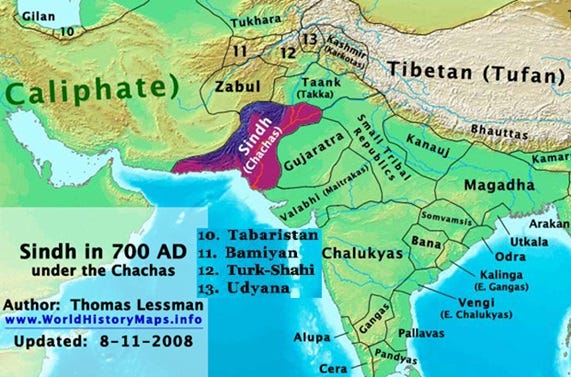
The Islamic indoctrination of the country even led to Indians being referred to as Hindus and not as Indians in general discourse. Pakistan, a country that has never encountered any Jews, preaches extreme and open anti-Semitism without any pretense. A Pakistani Muslim feels itself much closer to the Arab world with its hatred of Israel than any Bengali or Indonesian Muslim would feel. As a result, some Pakistani feels closer to Fallafal eating Arabs than North Indians — whose cuisine is largely similar to Pakistanis. People also think that Urdu is an Arabic language (a delusion shared largely by Indians) and not an Indian language. Urdu has grown out of the amalgamation of Farsi with Hindi/Sanskrit over centuries and has very few direct to Arabic (it has more links to Persian though). While its script is closer to Arabic, most of the words and grammar of Urdu is common with Hindi/Hindustani.
References: Section 3 and Section 5.
Cold War and Oil Boom:
The Oil crisis of 1973 and following boom in the oil industry meant that the Sunni Gulf states had become very powerful. These states (Saudi — Bahrain — Qatar etc) controlled the oil production and held the world economy by the jugular. US-UK policy towards this region changed to one of almost servile friendship. Having a Sunni majority, Pakistan naturally became an ally for the Sunni Gulf states against the Shia Iran. Wahhabism/Salafism, the state religion of Saudi Arabia (a particularly regressive and fundamentalist interpretation of Sunni Islam) started propagating world-over along with Pakistan. As a direct result of this, under the rule of Zia-Ul-Haq, the persecution of Shias and Ahmadis became common. Pakistan, not only become an Islamic republic, but also a Sunni Islamic republic.
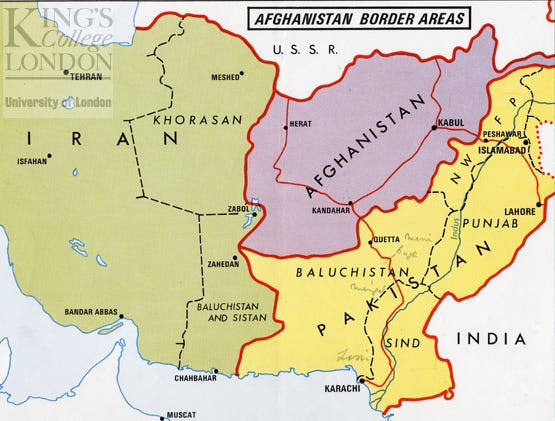
When the Soviets invaded Afghanistan, the stage was set for the climax of the Cold war in Pakistan’s neighborhood. The US-Pakistan-Saudi partnership funded and trained the Religious Mujahideen to fight against the godless communists. Pakistan had always pursued a policy called strategic depth in Afghanistan- which was that Pakistan influenced and controlled Afghanistan to prevent India from using friendly relations with Afghanistan to corner Pakistan from both sides. To achieve its own ends Pakistan kept on funding the most extremist of these Mujahideen with Saudi money keeping the US in dark, thus helping them morph into Taliban which took a fanatical form and took over most of the Afghan government after Soviet collapse. Thus at the end of the Cold war, Pakistan was left with a well-trained army of Islamic fanatics ready for jihad (Not all the jihadists went to form the Taliban).
References: Section 6 and Section 0.
Disproportionate warfare:
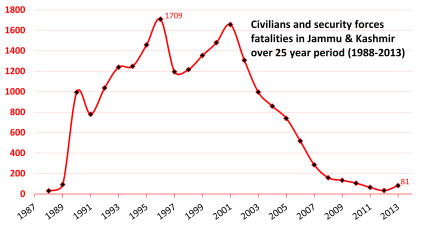
If Pakistani army had learned anything from 1971 war, it was the fact that Pakistan cannot ever beat the Indian army in a conventional war. Pakistan also believed India had a Nuclear weapon, though India’s nuclear test in 1974 — was officially released as a peaceful and non-weaponized nuclear test. Pakistan also began pursuing nuclear weapons and had come close to getting it by mid 70s. When the CIA got the whiff of Pakistan’s nuclear program, US congress sanctioned Pakistan for its proliferation of nuclear weapons. However, after the beginning of war in Afghanistan in late 70s meant that the US had to turn a blind eye towards Pakistan’s nuclear ambitions. While Pakistan is believed to have nuclear weapons from as early as the late 80s, it only tested its nuclear weapons after India tested its own Nuclear arsenal in 1998. (Pokhran II).
Now under Nuclear umbrella, Pakistan began with Disproportionate warfare. The ISI trained jihadis went on to form the Lashkar-e-Taiba, Jaish-e-Mohammad and Jamat Ud Dawaa which were funded and protected by the Pakistani establishment. These jihadist entered Kashmir in the late 80s and the Kashmir conflict erupted anew with more blood than ever before. The ethnic cleansing of the Kashmiri Pandits that followed the entry of these jihadis into the Kashmir valley went on to change the Kashmir conflict forever.
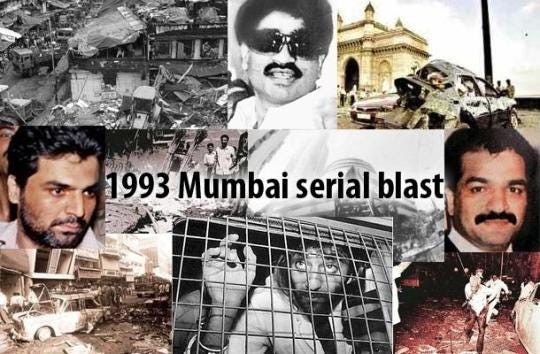
The Babri mosque demolition and the growing Hindutva movement (which resulted in bloody riots across north and western India) further strengthened Pakistan’s resolve to “Bleed India with a thousand cuts”. The increasing Indo-Pakistan conflict in the following decade included the 1993 Bombay blasts and culminated with the Kargil war in 1999. Hostilities between India and Pakistan continued well into the new millennium, which included the 2001 Parliament attacks and the 2002 Indo-Pak standoff (which was the biggest ever mobilization of Indo-Pak forces). Over 100 terrorist attacks in India from 1988 have been attributed to the above mentioned terrorist organization with implicit or explicit support of ISI. This disproportionate warfare has been seen as a successful strategy by the Pakistani establishment, as they themselves bear the very little cost of possible repercussions and maintain plausible deniability about particular incidences.
References: Section 6, Section 7 and Section 0 .
Pakistan today:
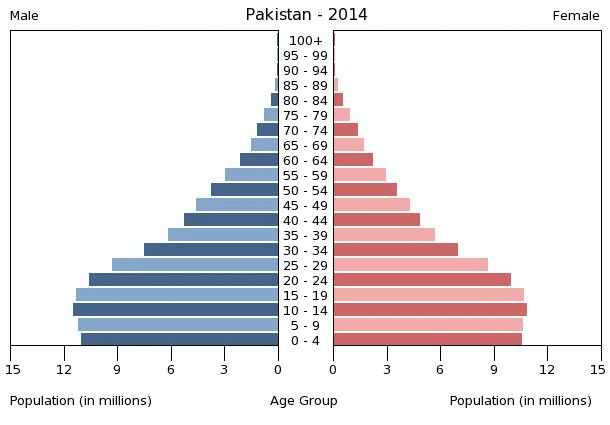
Pakistan today is a very young nation with more than 70 percent of its citizens being born after the 1971 war. These people don’t remember the humiliating loss of 1971 which led to loss of 50% of its population and unconditional surrender to the Indian army with over 90k prisoners of war. These people have never been taught about the historic ties they share with Indians. They are extremely misinformed in the actual history of the region they inhabit (Saffronisation of education in India means we are following the same), with many not paying any attention to the pre-Islamic history of the country. The Indus valley civilization, the preeminent urban civilization which mainly lies in Pakistan is not fully embraced by Pakistanis because of its Pre-Islamic origins. Not only have the Buddhist and Hindu influences over the region of Pakistan been erased, but the Sikh heritage of Punjab has also largely been forgotten. Lahore, the eminent center of Sikh heritage no longer has any Sikhs. Bhagat Singh, arguable the most popular modern historic figure in India is largely forgotten in Pakistan in-spite of hailing from Lahore.
The civil society though alive in Pakistan has largely unsuccessful in fighting the state level radicalization of its people. The masses from this country today believe 9–11 was a Jewish conspiracy to turn Americans against Muslims. Most polls conducted in Pakistan believe that Osama-bin-Laden is a Hero while America and India being the ultimate Satans. Pakistanis overwhelmingly do not believe that India has suffered huge amounts of terrorist attacks emanating from Pakistan. Pakistani regional papers regularly call a terrorist attack in India as a Hindu-Jewish-American conspiracy. When evidence of Muslims being perpetrators of this violence emerges, the focus is shifted on atrocities on Muslims in India and the terror is viewed as a defensive jihad by the larger Umma (worldwide Muslims).
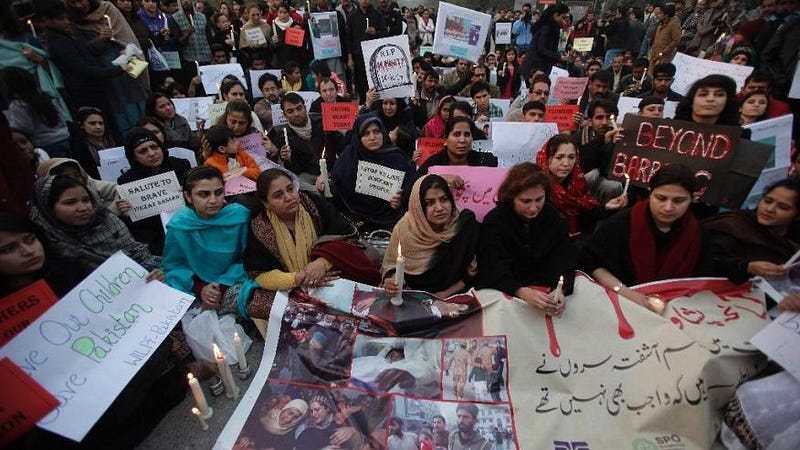
Even the atrocious terrorist attacks carried out mostly by the Pakistani Taliban — Tehrik-i-Taliban Pakistan, are blamed on Indians. The ISI is believed to have placed Indian Rupees on some of the worst terrorist attackers captured in Pakistan (Indian rupees which ISI prints in abundance). When even one of the terrorists caught in Pakistan is found or believed to be un-circumcised (Some of the Pakistani Afghans who form the majority of Pakistani Taliban are uncircumcised) the terrorist attack is blamed on the Hindus in the local media. The devastating floods of 2010 which ravaged Pakistan were also linked to some Hindu-Jewish conspiracy in some of the local newspapers.
While such conspiracies are common around the world — they’re a normal part of the national discourse in Pakistan. The horrible attack on school children in December 2014 by the Pakistan Taliban was squarely blamed on India by both the administration and some parts of the media. While no one around the world takes such claims seriously because of the terrible reputation Pakistan has garnered, many Pakistani citizens must fall prey to the ISI-Army propaganda machine (like some Indians do to the RW propaganda which is increasing especially ONLINE).
References: Section 6, Section 7 and Section 0 .
To be: Aman ki Asha:
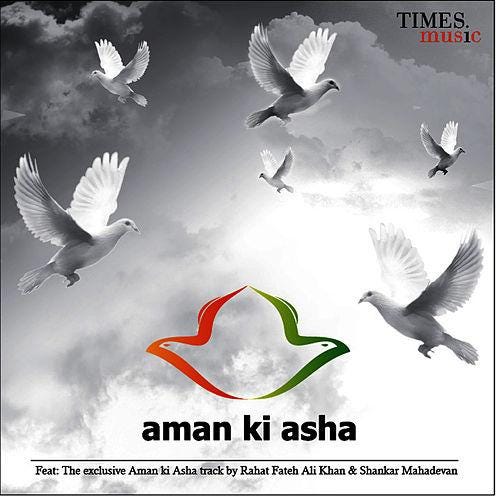
Aman ki Asha theory is that only normalizing relations with Pakistan can help the Pakistanis realize that Indians are not the dirty Hindus they are taught but decent people with whom they share an ancient heritage. These folks also believe Indians can overcome their long-held prejudices about the average Pakistani. While in theory, this idea looks as an idealist and good, this approach has been failing for 70+ years. The Aman ki Asha folks tend to make a fatal error in understanding the Pakistan approach.
The Pakistani state is largely controlled by the Military which stands to lose a lot from normalizing relations with India. The only reason the Pakistani military continues to hold on the disproportionate resources of the nation is the perceived existential threat posed to Pakistan by the Hindu-India. The Army generals continue to run the country either directly or indirectly as they want. Anyone who opposes the Military is eliminated- from state execution of Zulfikar-ali-Bhutto to killing of Benazir Bhutto- his daughter. Apart from these 2- an exceedingly high number of Pakistanis have been killed directly or covertly by the Military or Military backed Terrorists since its inception. Anytime a civilian elected government wavers from the Army line, a perceived coup-de-grace is delivered to the faltering government which inevitably results in a military dictatorship. To assume that the Pakistani military will lead to normalizing relations is a highly deluded position to hold.
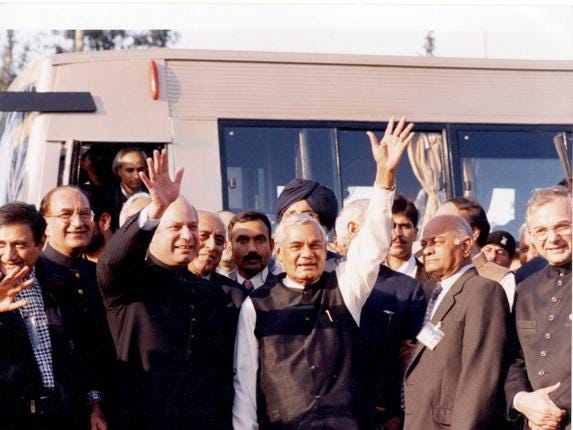
The Aman-ki-Asha folk also believe that coming to a satisfactory solution to the Kashmir problem will remove the bone of contention from Pakistan, thus letting it become a normal state over the following decades. This seems possible in theory but has been proven to be not so. India-Pakistan has come close to coming on a consensus on Kashmir issue 2 times in the previous 2 decades. Vajpayee’s Pakistan outreach with the Lahore trip was treated with Kargil. Vajpayee and General Musharraf (who had been instrumental in the Kargil conflict) had reached a consensus in 2001, but this progress was hindered by the attacks on the Indian parliament. A few years later, Manmohan Singh reached a consensus first with Musharraf and second with President Zardari. This peace process — which was opposed by the Hindu Right, would’ve still gone ahead if not for the spectacular Mumbai attacks- 2008.
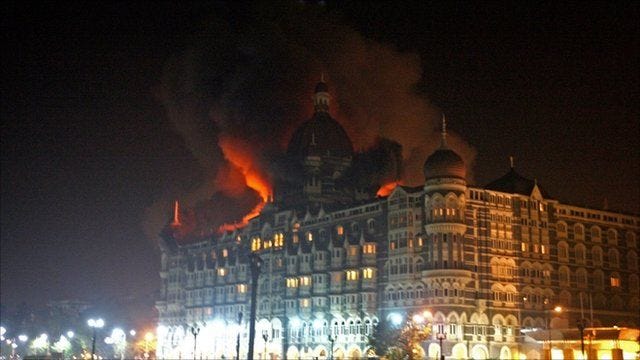
This behavior has been repeated every time Modi has made progress in talks to Pakistan and can be safely considered as a pattern. Attacks on Pathankot and Gurdaspur have followed Modi’s reaching out to the Pakistani government leading to the continuation of hostilities.
India cannot be expected to sit back and suffer regular Pakistan funded attacks and continue peace talks and Kashmir settlement. Reaching on any Kashmir settlement when Pakistan sees itself in a position of strength is not only India’s national interests, but also gives the impression of bowing down to terror. Such behavior will certainly encourage further terrorism fueled blackmail by Pakistan from under its Nuclear umbrella.
Thus its safe to debunk most of the Aman-ki-Asha talks.
(With the revocation/dilution of article 370 and the muscular Nationalism of Modi government, especially after Balakot – such Aman-ki-Asha talks appear even stupider than they did in 2016)
References: Section 6, Section 7 and Section 0 .
NOT TO BE:
A fraction of Indians, believe that an all-out war will be a solution to the Pakistan problem. The very deluded ones don’t mind a nuclear holocaust if it means annihilation of Pakistan. These are the ones not worth wasting much digital space on (Than necessary in pointing out that they exist).
While most rational Indians don’t want war, options like ostracization or boycott, revoking the Indus valley treaty are increasingly gaining traction in the country.
It’s important to point out that ostracization/boycott will not work unless it is backed by the international community. Iran — a country much more informed and educated than Pakistan could hold on to severe international sanctions — for its nuclear program. Pakistan — a nuclear state is much difficult to handle via sanctioning (while not impossible). Of the 5 permanent members in UN security council, 2 countries are unlikely to allow complete isolation of Pakistan. — At least today.
Current Geopolitics:
United States:
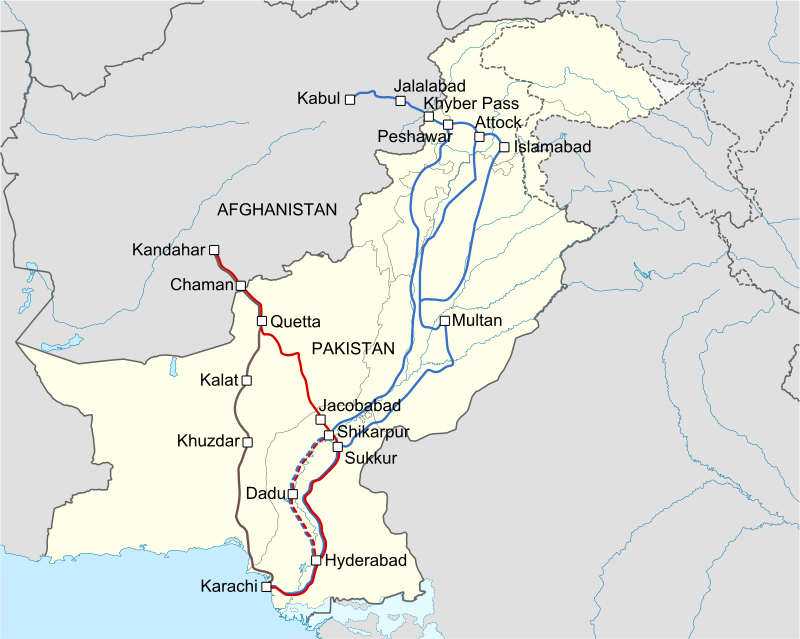
Afghanistan being a landlocked country, can be reached most easily through Pakistan. Routes through Iran are tougher to navigate even if Iran was not a US enemy. Routes through former Soviet countries are equally difficult as these countries themselves are landlocked (Russia also has a significant say still in these countries). This along with the Nuclear blackmail, which Pakistan plays well has meant that the US has been unable to take tough action against Pakistan for being the most fertile breeding ground of terrorism. If the killing of hundreds of US soldiers in Afghanistan due to sabotage by Pakistan and the Abbottabad raid to kill Osama bin Laden have been able to make Pakistan a pariah state in US eyes, India’s tragedies will most certainly not. Though apparent US withdrawal from Afghanistan makes news every now and then, it is unlikely to happen completely by 2019. Even if the US withdraws from Afghanistan, Pakistan can still support the Taliban leading to destabilization of Afghanistan which will ensure US intervention. Pakistan thus has the United States by the proverbial throat till the mess in Afghanistan clears up.
References: Section 6 and Section 0 .
China:
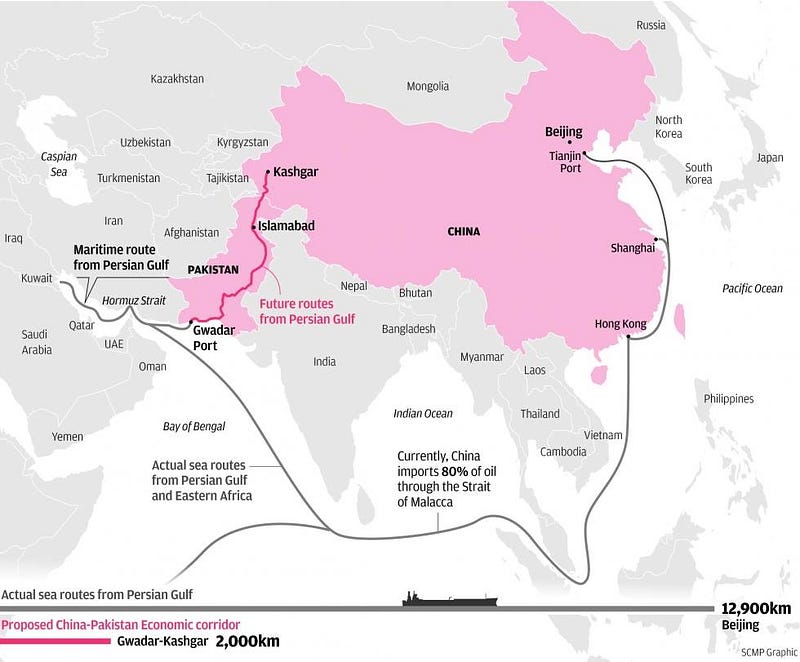
Few countries in recent times have been as allied in interests as China and Pakistan. China and Pakistan have agreed upon the CPEC which connects China to the Arabian sea via a series of roads and rails along with Pakistan to the port of Gwadar which lies in Baluchistan. As visible in the above picture, this highway passes through the Gilgit region of Pakistan Administered Kashmir. India still claims this region as its territory making any Chinese project there illegal if India were to reclaim this region. The UN resolution on Kashmir which talks about the plebiscite requires Pakistan to completely demilitarize Pakistan administered Kashmir regions. Any progression of talks leading to a plebiscite might lead to serious problems for the CPEC. China also aspires to have these routes running through the Kashmir valley, which falls on the Indian side of the Line of Control. Thus it falls in Chinese national interests to escalate the tensions in Kashmir which might eventually lead to some agreement that China perceives as being more in line with Chinese interests.
China has till now vehemently opposed Indian initiatives in the UN in sanctioning terrorists based in Pakistan. It can also be argued that China believes that its regional hegemony will be challenged by a strong India and hence want to prevent India from ever achieving its potential.
However such innuendos fall deeply in the realm of speculation.
Aside from these 2 roadblocks in isolating Pakistan, there is an argument that isolation will only help the authoritarian state machinery of Pakistan. Barring a few examples, isolation rarely has made modern nation-states change its record. Critics will point out that apartheid worked in South Africa — though it took decades. South Africa in-spite of horrible racism and apartheid was a functioning state. To call the military governed country of Pakistan as a functioning democracy is a laughable proposition. North Korea- a country sanctioned for its entire lifetime, shows no sign of falling apart. These sanctions on the country have in no way made South Korea safe from North Korea. However the average North Korean continues to be underfed and malnourished while its fat psychopathic leader remains the unifying figure in the country. The harsh sanctions imposed on Saddam’s Iraq did nothing to weaken Saddam’s Baath party but resulted in nationwide child mortality as a direct result of these sanctions. The popularity of Saddam also saw a rise after the harsh sanctions, as Saddam was made out as the sole bulwark against the United States.
It’s thus fair to assume that any angry rhetoric from India only strengthens the position of Army in eyes of its countrymen as its sole protector from Angry Hindu India. Political isolation, if it occurs has to be handled in a diplomatic manner without excessive hate-mongering.
However, the SAARC boycott, though not sufficient, is a welcome development that might lead to some softening of the Pakistani terror M.O.
References: Section 6, Section 8 and Section 0 .
Indus waters treaty:
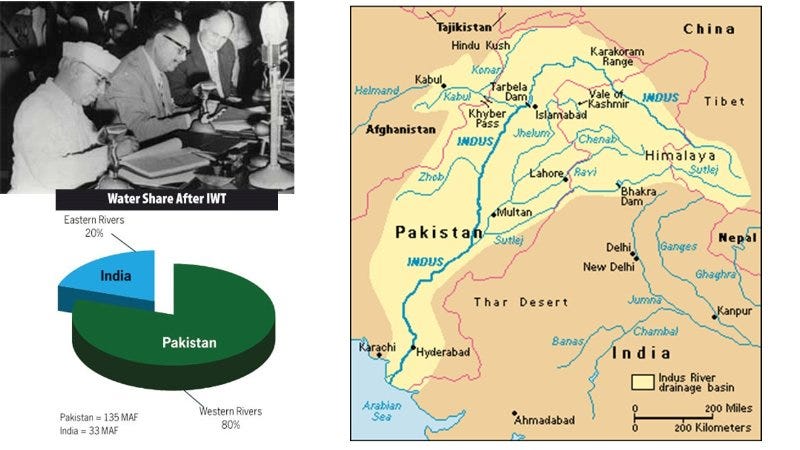
Any drastic step taken with the withdrawal of the status quo on Indus waters for Indian goodwill led to 70–80% of Pakistan being under extreme droughts in the future. For a country which saw the worst drought in 30 years in 2016 — especially in Maharashtra, should not be talking lightly of starving a nation full of poor people of the most basic of human rights. Such an action will not only ravage the country but also throw away the internationally responsible image of our country. A disintegrating state and water calamity will also attract Islamic jihadis from the world (As Soviet invasion of Afghanistan and Iraq war — 2003 have done) — as any humanitarian disaster in the Muslim world does. With climate change, the subcontinent is going to face severe water shortages in 10–15 years, any such rash act can lead to unimaginable consequences. Such a country may be more likely to use nuclear weapons in the future than it is today. Today the state of Pakistan has largely used Nuclear weapons as a blackmail chip against India and the USA, its role may change in a country under severe and perennial human disasters which can now be rightly attributed to India. Amidst the understandable anger at terrorism from Pakistan, one mustn’t jingoistically sow seeds for further calamity. To assume that the rationality of Pakistan, in wake of impending droughts, may help tone down the bellicose nature of the state is deeply flawed.
Due to Fatwas against vaccines by the Taliban and generic anti-scientific attitude, Polio has made a come back in Pakistan. Waterborne diseases like Polio now extinct in India (but not Pakistan)- can become a subcontinent epidemic again if Pakistan were to suffer from water shortages in the near future. (A single migrant from Pakistan can spread Polio across the country amidst water crisis). All this while we cannot forget that the Brahmaputra which enters North-east India from China can be used in the future by the Chinese as a weapon of war if India sets such precedence. While the water-rich Assam region may not starve for water due to such Chinese actions, the release of high volumes of waters by China can worsen the annual floods of Assam.
Aside from all these practical reasons, the argument of morals should surely prevail before India escalates any Water wars.
References: Section 8 and Section 0.
While it can be claimed that no conflict has an easy solution, it has to be conceded that some conflicts have no feasible solution. Is Pakistan’s problem such a conflict? Many would concede so.
In the short run, under the current jingoism, it is inconceivable for Indians to take a nuanced path forward.
Possible Ways forward:
In short term:
At least in the current scenario, India needs to call Pakistan’s bluff on Nuclear weapons. Terrorist attacks like Uri have to meet with a strong and apt response. It can be safely assumed that China, Pakistan’s sole backer, is a rational entity and will prevent from letting the matter escalate into a nuclear war. Being geographically larger India can possibly recover from Nuclear war, though the world as we know it will cease to exist, with Pakistan being annihilated. As in the game of Chess, it’s fair to assume Pakistani establishment recognizes this consequence and is as today, is restrained by some sanity. The Chinese and American pressure can be counted upon to sanitize Pakistan. In such a scenario, India has to settle the Kashmir Issue. Kashmir cannot and must not remain bleeding for such long amounts of time.
All the while it is necessary to tone down the Anti-Pakistan rhetoric on social media. PM Modi has made it clear that India’s problem is with Pakistani establishment and not the people. This message has not sunk in the countrymen, who have gone to various lengths to make themselves feel good. These social media warriors along with the loud Arnab Goswami and others have used this opportunity to play war in AC studios while a real war might actually break out with disastrous consequences. We as Indians, need to resist giving into these morbid exhibitionist tendencies on display nowadays in media.
A critic on Indian Medias coverage of Pakistan issue: — Link:
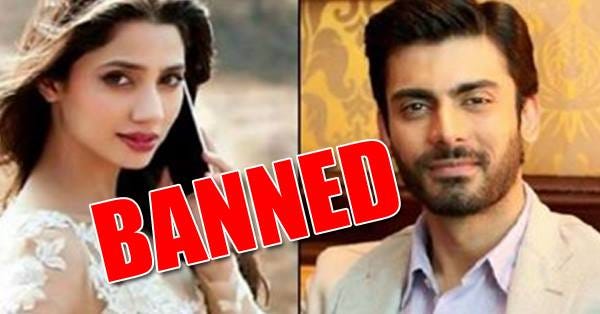
Asking Fawad Khan and other Pakistani actors to condemn Uri attacks in tantamount to asking them to condemn their own country. While it is fair to assume that their opinion of their country may have changed a bit after the imploding terrorism in Pakistan and the love they received in India, it’s still unfair to ask them to make a comment which will be received poorly in their own country.
While it can be argued that if these stars can condemn Uri attacks as terrorism without blaming Pakistan, similar to the world condemning Paris and Peshawar school attacks, underneath this argument lies a subtle nuanced fallacy not widely appreciated. Paris and Peshawar attacks like most terrorist attacks were attacks on unarmed civilians carried out with the objective of terrorizing and sending a political message. The Uri attacks were specifically aimed at the army — seen as the machinery of the state — even though they’re humans who have to continue to face terrorism on a daily scale. Another point is that unlike other terrorist attacks, this was a terrorist attack where terrorists directly crossed LOC to attack the Indian Army. To assume that one can condemn this act as terrorism without pointing fingers at the Pakistan Army, which let these terrorists pass through their terrorism is naive. Only extreme verbal gymnastics would’ve let Pakistani actors make comments which would’ve passed in India without inflaming Pakistan.
It’s also necessary to point out that attacking Fawad Khan and Pakistani artists will only serve as tokenism which will achieve nothing more than making the people attacking them feel good about themselves. If we want the Pakistani people to understand that all of us don’t hate all of them (not sure there is a consensus their), jumping on the Hate Pakistani actors bandwagon will achieve nothing.
While criticizing the general Anti-Pakistanis rhetoric, it’s necessary to point out that financial concerns of Bollywood (sales in Pakistan) cannot be a major criterion in the discussion of National policy on Pakistan.
References: Section 0, Section 1 and Section 9.
References: Section 0, Section 1 and Section 9.
In the long term:
In the long term, only the redefinition of Pakistan and the major reorientation of the Idea of Pakistan will ensure safety for India. However, this is not the process that India can directly influence while Pakistan continues to be under the nuclear umbrella. Improving relations with China can help in this process, as Pakistan without a friend and without an enemy is most likely to have a popular uprising from within which changes the status quo. The changing regional power dynamics in favor of India without a particular animosity with India (with Kashmir solved) could arguably serve as the best catalyst for the redefinition/reorientation of Pakistan.
In meanwhile India must do its best to reign in its Hindu chauvinism, which though sporadic and intermittent, can be used to reiterate the two-nation theory (As Muslims wont be perceived to be safe in India). The hugely positive response the PM received will hopefully make the BJP realize that it can win elections without Hindu-Muslim polarization. The pandering to reactionary elements in Muslims (Congress style) or Muslim identity politics (Asad Owaisi / Azam Khan) can be stopped only if the deep-rooted Anti-Muslim bias of the average Indian wears off and Hindu identity politics takes a back seat in the national discourse. Only then will an India emerge where Muslims won’t remain ghettoized and will truly participate in and enrich our national growth. Such a Muslim society is much more likely to have progressive reforms within their community than the current community of Indian Muslims.
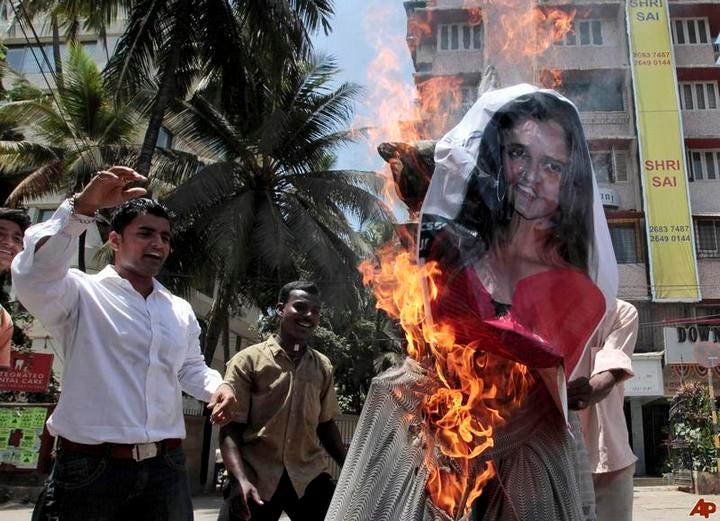
Public Muslims in the country like Shahrukh Khan and Aamir Khan cannot be held to different standards than Public Hindus. While a Radhika Apte or Karan Johar asking for Pakistani actors to remain in Bollywood faces criticisms, the level of anger a Muslim actor will face is on a different plane. The disgraceful way in which Sania Mirza was treated after her marriage to Shoaib Malik in certain circles continues to blemish the Indian republic.
While its fair to say that the 2 nation theory was disproved with the formation of Bangladesh, it can not truly be discredited while sections of Indian Right-wing (inspired by Savarkar and Golwalkar) also continue to believe it. Indian Right-wing needs to trust its Muslims and help them come out of the cycle of reactionary politics. It is only decades after such changes that the two-nation theory will be completely debunked as Indian Muslims will on average be visibly doing better (not just in Bollywood and Cricket but in engineering medicines etc) than the average Pakistani.
Only then will the Idea of India truly win over the 2 nation theory.
References: Section 10. and Section 0
As someone who identifies as a Centre left-liberal, I am slightly more alarmed at the prospect of Muslims in India (than in 2016) and Indo-Pakistan question in general, due to the rising Hindutva movement- especially the CAA – which makes an attempt to define India as the natural homeland of subcontinental non-Muslims – an exact mirror of Jinnah’s Pakistan.
References:
References are not as per general academic standards. These references serve as an easy way to cross verify and deeply analyze all the statements made in the essay. It could be found that on some occasions, statements are not direct sources but are part of interpolation or extrapolation based on analysed information and data. It can be argued that certain sections of the essay venture firmly into realms of speculation.
Section 0:
India after Gandhi: Ramachandra Guha
Christine Fair: Link:
Fighting to the End: The Pakistan Army’s Way of War
Hussain Haqqani: Link:
Pakistan: Between Mosque And Military
Section 1:
(a): Iqbal:
(b): Jinnah:
Section 2:
http://www.nationalarchives.gov.uk/education/resources/the-road-to-partition/
Major Humayun Amin’s report: Link
Section 3:
http://emerald.tufts.edu/~ajalal01/Articles/conjuring.pdf
Section 4:
http://globetrotter.berkeley.edu/people5/Coll/coll-con5.html
Zulfikar Ali Bhutto’s piece: Link
Section 5:
Section 6:
http://www.huffingtonpost.com/dr-yousaf-butt-/saudi-wahhabism-islam-terrorism_b_6501916.html
http://nationalinterest.org/feature/the-time-america-almost-invaded-opec-15726
Section 7:
General Asad Durrani: ISI Head interview : Link:
Section 7:
Some conspiracy theories in Pakistan: Link:
Section 8:
https://www.thenews.com.pk/print/155573-Propaganda-against-CPEC-upsets-China
Section 9:
http://www.bbc.com/news/world-asia-india-28458287
Section 10:
MS Golwalkar: Link:
BR Ambedkar: Link:
VD Savarkar: Link:
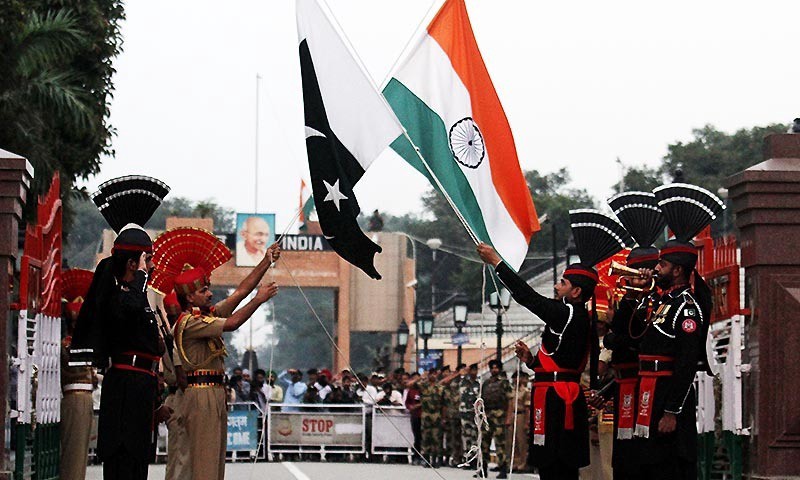
Long time have passed since 2016, this piece was already outdated back then. Indians are not doodh ke dulhe huwe. They have been supporting afghan and baloch based terrorism in Pakistan. Lets not forget RAW agents being caught in Karachi every other day. They were the ones who supported Bengali terrorists against Pakistan state.
Remember to point this out in future when you cry about support to Kashmiri militants.
Absolutely agree with you that India is not innocent. It obviously supports anti-Pakistan terrorism– their spy Kulbushan Yadav is a prime example of this. The government of Pakistan should absolutely put that man to death. No excuses.
But, I do think supporting “jihad” in Kashmir was a wrong move on Pakistan’s part. We transformed a nationalist freedom struggle into a religious war and allowed India to defame an anti-colonial freedom struggle as “jihad”. This is particularly salient post 9/11.
Also, if you are a Pakistani, please don’t use the word “militant” to describe our Kashmiri brothers. They are freedom fighters.
****************************************
The piece itself is overall a typical Indian nationalist view. I don’t have much to add.
Some glaring discrepencies I noticed while skimming:
Qaid-e-Azam was not an “aristocrat”.Liaqat Ali Khan was a zamindar. “Aristocrat” can describe him but not the Qaid. The Qaid made his money through his extremely successful law practice.
There is no insurgency in Sindh.
Finally for a self-identified “center-left liberal”, the author seems to have very little love for INC–India’s actual Center-left party.
I think, all that India has to do , is to sit back and watch Pakistan implode from economic crisis. There could be ways to buy Pakistani debt , at deep discount and use that leverage further
No medical visas, no Aman-ki-Asha, no IPL or bollywood roles for Pakistanis
Just evacuate the remaining Kafirs in Pakistan, Kalash, Sikhs, Hindus, Christians and make Pakistan 100% islamic like Afghanistan
The Chinese are not benign masters like USA, and will demand more than a pound of flesh. Already Chinese laborers are beating up Pakistani Jawans inside Pakistan
Also I expect a million Pakistani women trafficked as brides to pig eating Chinese men
The GDP gap is now 10X and I expect it to grow to 20X by 2030 , and effectively Pakistan becomes a North Korea type nuisance
The Indian army is heavily shelling LOC daily and has local superiority
Totally true. No need to conduct any talks or trade or people to people contact with Pakistanis at all until they learn to co-exist peacefully like civilized nations. Ignore all useful idiot peaceniks who constantly advocate talks with Pakistan.
Fucking with the Jihadi’s cash might be the only thing they understand.
Thankfully, the mood of the Indian public has changed and now there’s no will for any dialogue with Pakistan. There’s no point talking to a foreign government which carries out terrorist attacks in our country. We must not negotiate with terrorists, or in this case a terrorist state.
Touch one person in AZAD Kashmir and we will teach you Hindus a lesson you will never forget.
Don’t even think about fucking with the world’s only Muslim-majority nuclear power. Bloody Hindutvadis.
Touch one person in SECULAR India and will teach you Muslims a lesson you will never forget
Don’t even think about fucking with the world’s only Hindu-majority nuclear power. Bloody Islamists.
😉
If you threaten the Islamic Republic, you better believe there will be consequences.
I may not like the Imran Khan regime but if the homeland is threatened all 220 million of us Pakistanis will be on the same page against Hindu India.
I am very anti-war. Especially given our increased destructive power as humans.
I am hoping human beings can move past bonking each other on the head and let go of imagined animosities. To work on common problems that afflict us.
Personally even if I am killed by a Pakistani nuclear weapon launched by some general, I would not want retaliation that would inevitably kill some innocent Pakistanis, and make the world a worse place.
You are a cultured, reasonable, guy so it is sad to hear this sort of sentiment coming from you.
I’m not pro war by any means. But if the territorial integrity of the Islamic Republic ever comes under threat, there will be consequences.
Don’t threaten the Islamic Republic and there is no issue.
Imran Khan released a map that shows parts of Gujarat as Pakistani territory.
https://www.dawn.com/news/1572590
What does territorial integrity even mean ?
There’s nothing new about Imran Khan’s map.
Pakistan has always had a claim on Junagadh ever since the Nawab acceded in 1947. The Nawab of Junagadh’s accession to Pakistan is just as legal as the Dogra’s accession of Kashmir to India. It’s a different matter that India hypocritically held a plebiscite in Hindu Junagadh and refused to hold one in Muslim Kashmir.
We can all play the political map game. You all insist on including Gilgit and Muzaffarabad in the map of India when those areas have never been under your rule since 1947 and the Muslims of those regions will never submit to Hindu Raj.
“Imran Khan released a map that shows parts of Gujarat as Pakistani territory”
I was wondering might as well show East Pakistan on their map, and then….
Are you deliberately being obtuse?
We still have a legal claim on Junagadh.
We recognized Bangladesh as a sovereign country way back in the 70s. Why would we put “East Pakistan” on our map?
And you all keep fantasizing about ever getting Azad Kashmir and G-B. Never going to happen Hindutvadis. There’ll be a nuclear war first.
A wise man only issues threats he is capable of carrying out.
You’re not going to get served tea next time.
We can start by putting your Mr. Yadav to death. No more Hindu Indian spies will threaten our country.
The Indian army fucks with Pakistanis along the LOC everyday man.
You guys don’t even have the honour to collect the dead bodies of your soldiers.
Go die in shame.
Kabir sounds more and more like the Navy SEAL copypasta every day.
Gaurav
few comments on Indus water treaty. I would propose that the treaty is perhaps the only non violent way for India to retaliate against Pakistan in any effective sense. Even remaining within the treaty there are number of ways India can hurt Pakistan.
https://www.circleofblue.org/2016/asia/rivers-run-michael-kugelman-discusses-kashmir-conflict/
“Cody:
So you just went through the worst case scenario of revoking the whole Indus River Treaty. Without revoking the treaty and staying within the confines, could India use it as a tool to limit water in Pakistan or as pseudo-weapon of war?
Michael:
Well, there are things that India is able to do within the bounds of the treaty that could hardships for Pakistan but still would be considered legal per the treaty itself and the main thing India could do, and in fact it’s suggested it’s going to do this, is essentially to build more dams on particular rivers…..Now the thing is even if that were to be done, a number of studies that I’ve seen, that I’ve been involved with, have essentially concluded that even if you build a series of dams, even if India were to build a series of dams on these rivers, these western rivers, that don’t take up, that don’t store that much water, there could still be downstream effects in Pakistan, which are hard to quantify, but some of the more credible estimates that suggest you could have cases in Pakistan where you could have enough water that is somehow prevented from falling, from flowing downstream and that could impact an entire planting season in Pakistan”
Of course this does not take into account India unilaterally rescinding from IWT, which in the age of US rescinding from Paris Climate talks and all is small change. There will be diplomatic fallout, but the gains far outweigh the loses. India will not only have more water for itself , it will always have an annual weapon. You hurt Punjab, you hurt Pakistan. And no, i dont think Pakistan or the world community at large sees uses of Nuclear weapons as just response on treaty withdrawal.
” All this while we cannot forget that the Brahmaputra which enters North-east India from China can be used in the future by the Chinese as a weapon of war if India sets such precedence. ”
China has no water sharing treaty with anyone and can hurt India irrespective of IWT. Also dont forget Assam floods has downstream effects on Bangladesh, a country which China is courting. Plus China will not do something FOR Pakistan against India, where it does not get a share of a pie as well.
“Of course this does not take into account India unilaterally rescinding from IWT, which in the age of US rescinding from Paris Climate talks and all is small change. There will be diplomatic fallout, but the gains far outweigh the loses. India will not only have more water for itself , it will always have an annual weapon. You hurt Punjab, you hurt Pakistan. And no, i dont think Pakistan or the world community at large sees uses of Nuclear weapons as just response on treaty withdrawal.
” All this while we cannot forget that the Brahmaputra which enters North-east India from China can be used in the future by the Chinese as a weapon of war if India sets such precedence. ”
China has no water sharing treaty with anyone and can hurt India irrespective of IWT. Also dont forget Assam floods has downstream effects on Bangladesh, a country which China is courting. Plus China will not do something FOR Pakistan against India, where it does not get a share of a pie as well.”
This does make sense logically- Especially the Bangladesh part which i hadn’t thought of.
But maybe I don’t have the stomach to even envisage this tactic which i find morally uncomfortable- maybe 10 years down the line in my 40s I will be sympathetic to this 🙂
As someone said –
you are a bleeding lefty around 20
a moderate liberal in 30 and
a skeptical conservative in 40
I think the Govt does consider all this proposals. The bottleneck right now is Indian capacity itself of how to channel the extra water. Once the perpetration is done in a decade or so, i see India in a better position to permanently stymie the IWT reconciliation process itself which will tantamount to India not following the treaty. The treaty will just remain on paper (Like Shimla treaty) and its far cleaner approach than withdrawing from the treaty. Of course it also depends on whos’s in the Govt at that time and will they have the balls to handle some diplomatic fallout.
As a general principle water cannot be taken over mountain ranges. Maybe with tunneling/pipes it is possible to pull it off but would need China/Japan level cash lying around and nothing left to do/prove in life like the Japanese.
Most useful of Pakistan-alloted river of IWT for India is Chenab. Atal Bihari Vajpayee wasted Salal to appease Pakistan. Now all the dams are upstream in Kisthwar. We have quite a few of them with two more under construction. India has really screwed up this river with so many dam, not sure if anymore can be built.
https://en.wikipedia.org/wiki/Chenab_River
If India violates IWT it is going to do it with Chenab. Indus and Jhelum are impossible/infeasible. I think Indus will forever remain untouched, it is completely infeasible for even medium sized stuff.
There are occasional calls from J&K politicians for keeping more of Jhelum water for themselves but there are hardly any wise/competent leaders of Kashmir. Mostly it is Delhi who has to thanklessly take all the blame(from Pakistan) when it should have been Srinagar’s job. Tulbul is an example where Kashmiris did not make enough noise (against Pakistan) to help themselves and Delhi pulled it off alone.
I maintain that all Pakistani water management people are idiots. This is what happens to people who pursue ‘strategic studies’, ‘comparative religion’, ‘international relations, ‘geopolitics’ and ‘south-asian studies’ over Engineering. Like heavenly ‘qoumi leader’ who will fix everything they think big dams will fix their misery. Severe lack of human capital and capacity in engineering while playing with fire. Sometimes I wish I was born in Pakistan, I would have been ‘andhon mein kaana raja’ and managed to improve so many lives with just basic common-sense.
First ur anger is misdirected on Vajapyee. It should be on the guy who signed the IWT.
Second there are far more egregious thing which Indian politicians have done to curry favor with Pakistan, than what Vajpayee did.
Third , If it violates IWT, India does not need the change the courses of waters of western rivers. It has to weaponize it by storing it enough (during drought) and releasing it during plantation season. This are 2 separate things. This is an annual fair, and India does not need to store water to create electricity or transport it though canals. You need not hit lower Indus region like Sindh, Punjab is enough.
Tulbal is still incomplete and GoI had nothing to do with it.
India cannot do anything with the waters of the Indus Jehlum and Chenab, no matter how many dams it builds, run of the river, or storage. The Jehlum and Indus waters cannot be sent out of Jammu and Kashmir or Ladakh to any other part of the country, and that is also true of the Chenab for all practical purposes. It joins the plains at Akhnur only a few kilometres from the border. The only possible canal alignment is already taken by the Ranbir canal.
“My family sees more money in a day than you’ve seen in your life.”
Delusions of grandeur from an unemployed guy while living in a beggar country. Does your family act as a corrupt broker for all the international loans Pakistan needs to keep itself afloat?
Also you did not answer what you do yourself to earn money. Your family may or may not be rich, but you are confirming my opinion that you are a complete wastrel.
Indians, please heed the wisdom of our ancestors.
लभेत सिकतासु तैलमपि यत्नत: पीडयन्
पिबेच्च मृगतृष्णिकासु सलिलं पिपासार्दित:|
कदाचिदपि पर्यटन् शशविषाणमासादयेत्
न तु प्रतिनिविष्टमूर्खजनचित्तमाराधयेत्॥
Haha beautiful! Where does this come from?
what’s the meaning of this? Sorry my Sanskrit is much worse i would like
It might be possible after a lot of effort to extract oil from sand,
a thirsty man may get water from a mirage,
after much searching one might even find a rabbit with horns,
but it’s impossible to convince an idiot.
Do i need to channel my inner Slapstik to translate that? 😛
The comment section is better than YouTube.
The piece itself is a hackneyed take. I’d rather the piece were shorter and the citations abstracted (most people can google), and the author summarise what he wants to say properly.
And lol @ Indus Valley treaty 🙂
yeah, I have heard that feedback before – I have merely reproduced it in entirety here as it seemed Brown punditish material-
the initial target audience wasn’t people who are well-read or well versed in so I didn’t try to be brief – there is a tl;dr link though –
In retrospect, it could be broken up into smaller pieces – but I had felt the flow would be lost in that when i wrote it.
Indus Valley treaty was b/w “Indus People” and Aryans, like the Isle of Faces b/w the first men and children of the forest.
From Twitter: Mahashivratri celebrations in Karachi in 1920.
https://twitter.com/PakHindus/status/1291910247926370305/photo/1
A hundred years and this is unthinkable now. Whereas Muslim Azan is blared all over India in every locality even where Muslims are a small minority.
This is what awaits India in pockets first, and large swathes later. Resistance is right and just and very necessary.
Dharmics should reclaim Pakia too but I fear that with their already higher birth rates (in Pakia and India) the population ratio is going to be worse in the future than the 67:33 (which is already up from the 75:25 we had only 70 years ago at partition which in turn was 80:20 just 50-70 years before that in the 1800s) we have in the Indian subcontinent now. Do we then want the crazy Islamo supremacist backwards Pakis in India? So maybe not reclamation but domination of the subcontinent and Dharmicization of India – that’s our best bet
Indians after surrendering Galwan valley to China think they can dominate anything but their own. Even Nepalis don’t respect this servile race.
Leave Indians to our fate.What’s up with your feud with the old sugar daddy Saudi? Heard they have called another billion of the bheekh that gave the driver Imran when he came to power and chauffered his lord Prince MBS from the airport? Is the new sugar daddy China putting new conditions/expectations?
Given your track record of running through sugar daddies, Pakistan must line up another one in case the China relationship goes sour. Khalifa Erdogan is not good enough because Turkey is not so rich and your Lord Erdogan has been running its OKish economy into the ground since he came to power
Nepalis were the only independent people till modern times, while some regions of the Subcontinent have been servile from 7th century onward, both to foreign people and to foreign religion.
[stop trolling or you are banned]
redacted my own comment..don’t want to engage in a flame war with Paki trolls
Pakistan needs a reason to exist and by this I mean the existentialist question. Lots of modern nation states just are. They are busy in solving life’s other problems. But not Pakistan. They have been turning the Rubik’s cube of Raison d’etre this way and that way for the last 70 years. Sometimes they are a modern Kemalist state, sometimes the Prophet’s keeper, sometimes the saviour of South Asia. They are the Pluto of Islamic orbits – alternatively raging at their loss of face in the Ummah and saving it the next day.
First of all, there is deep bathos at the fact that they are not Arabs. This simple piece of cultural relativism has escaped the cognitive reach of the average Paki. The elites though understand this tragedy and try to fill the hole with other emotional stuffing – Western visas and an over-funded soldiery that is sought for comfort.
It could have been very different – they could have easily chosen to self identify with Punjabi nationalism or the Persian worldview or just being cultural Hindus. But Jinnah and Iqbal fucked them deep and hard in a game called “Who is the better Muslim?”
Pakistan does and will continue to exist. Today is our 73rd birthday. Both India and Pakistan are socially constructed entities and were created at the exact same time from the BRITISH Indian Empire.
Pakistan defines itself as the homeland of the Muslims of BRITISH India. We are not Arabs and there is no issue with that.
If we had wanted to be “cultural Hindus”, there would have been no Two Nation Theory. We are Muslims first and foremost. Calling us “Hindus” (cultural or otherwise) is incredibly offensive.
As far as I am concerned, the only issue is the resolution of the conflict over the DISPUTED TERRITORY. After that, we should be able to be normal neighbors– we don’t have to (and probably never will) like each other, but we should be able to deal with each other pragmatically.
Pakistanis have to be pragmatic, when India comes knocking at GB and Sindh. After all, there will not be a third Niazi…
I had written a serious response to your post but your response shows you are just trolling.
India is never going to get GB and Sindh. Pakistan is the world’s only Muslim-majority nuclear power. Any threat to our territorial integrity is going to be met with the utmost seriousness. The Pakistan Army is fully prepared to meet any threats from India. If you seriously threaten our homeland, we are prepared for anything–up to and including using nuclear weapons against you.
The Muslims of GB and Sindh (or any other part of Pakistan) have zero intentions of ever being ruled by Hindus. Not going to happen.
I am prepared to have a serious discussion about resolving the issue of the DISPUTED TERRITORY, even if it means accepting the LOC as the permanent border. But if you’re going to troll by threatening the territorial integrity of the homeland, I’m not interested in engaging.
My comment was made in utmost seriousness. The Pakistanis of an earlier generation (1960-1970) spouted similar sentiments. Until IG dismembered Pakistan.
Retaking GB and Sindh are logistical and planning complexities, nothing more. Nuke arguments are dime a dozen, not really clarifying any practical questions.
The core Pakistani state is now weak, inward looking and soft – it lacks economic potency to fight a 7 day war. Most of the generals will be happy to survive and continue to leech the population.
We didn’t have nuclear weapons in 1971. We do now.
You are not getting one inch of the Islamic Republic. We will nuke Delhi before we let that happen.
Get that through your head.
Sindh was never part of “India”. The entire province went to Pakistan according to the Partition Plan. So there is no question of “re-taking” it. If you mean AZAD Kashmir when you say “Sindh”, the Muslims of AJK rebelled against the Dogra even before he “aceeded” to India. No Pakistani Muslim will ever consent to be ruled by you Hindus.
Recall what happened in February 2019. We shot down your planes and caputured your pilot. Don’t ever threaten the Islamic Republic.
Ugra,
You want Sindh? You can have it. But then be prepared for Pakistan to conquer the great Indo-Islamic cities of Delhi, Agra and Lucknow–all of which were the capital cities of Muslim kings.
I can’t wait for the day when we push Hindu India all the way south to Nagpur.
https://twitter.com/BeijingPalmer/status/1294350612411355136
Akhand Bharat 🙂
Jaaaaiiiii Shhree Raaam
There is no dumber idea ingrained in the Raita wing person’s head than Akhand Bharat. They delude themselves into believing that it could be possible without a massive Ghar Wapsi program. If we were to unite the regions right now the Muslims would kill every Hindu on the subcontinent and the international liberal media would cheer it because of caste.
If we were to unite the regions right now the Muslims would kill every Hindu on the subcontinent and the international liberal media would cheer it because of caste.
your hyperbolic bullshit annoys the fuck out of me.
you make these comment boards more moronic than they already are. stop it. there is only room for one village idiot in this hamlet
You yourself have stated that subcontinental Muslims have a decent amount of Hinduphobia internalized within them and judging by the plight of Hindus in Pakistan and Bangladesh I don’t think it’s a stretch to say that they might attack Hindus living on the subcontinent. In addition to this Hindus have been mentally raped by Sickularism and wouldn’t be united enough to fight back.
Also, the liberal media clearly resents Hinduism due to the presence of the caste system in our most sacred religion. I saw people from the Dalit organization (including a Bangladeshi Dalit you might be interested to know) attacking Harris for having Brahmin ancestors. Plus, I see Vice and Breitbart attacking Hinduism so there definitely wouldn’t be much support if they were to ethno-religiously exterminate us.
you sound like kabir
i assume the issue isn’t that you’re stupid but young?
Listen, man, I am a big fan of yours and I think the work you do is really incredible. I like that you listen to what male Hindus have to say but please don’t compare me to K*bir. The guy is fucking nuts. Also, I’m not dumb maybe what you don’t like is my youth.
#MaleHinduSupremacySoon